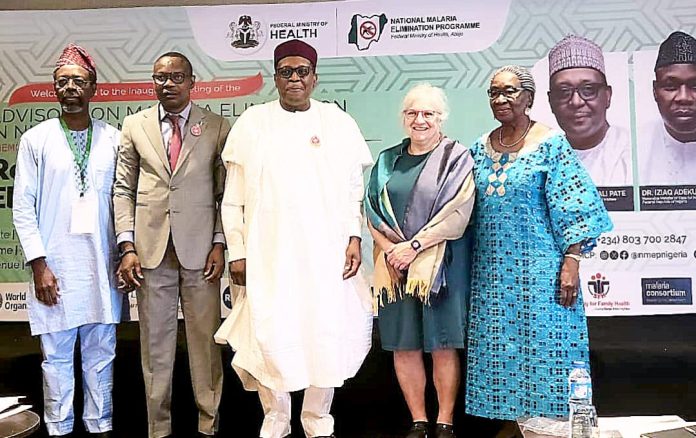The Federal Government has categorized malaria as both a health and developmental crisis, underscoring the urgent need for its elimination.
This declaration was made by Prof. Muhammad Ali Pate, Coordinating Minister for Health and Social Welfare, during the inaugural meeting of the Advisory on Malaria Elimination in Nigeria (AMEN), held at the Transcorp Hilton Hotel, Abuja.
In a statement signed by Mr. Alaba Balogun, Deputy Director of Information & Public Relations, Prof. Pate described malaria as a “wicked problem” severely impacting Nigeria’s health and economic growth.
A National and Global Challenge
Nigeria bears 27% of global malaria cases and 31% of global malaria deaths, accounting for over 180,000 child deaths under the age of five in 2022. The economic toll is staggering, with malaria costing the nation more than $1.1 billion annually in lost GDP due to reduced productivity and increased healthcare costs.
“This is not just a health crisis; it is an economic and developmental emergency,” Prof. Pate stated.
Strategic Goals for Malaria Elimination
The Coordinating Minister highlighted malaria elimination as a critical aspect of the Nigeria Health Sector Renewal Investment Initiative (NHSRII) and aligned it with the government’s Renewed Hope Agenda.
The National Malaria Strategic Plan 2021-2025 aims to:
Reduce malaria prevalence to below 10%.
Cut malaria-related mortality by half, achieving fewer than 50 deaths per 1,000 live births.
Advocacy for Grassroots and Community Involvement
Prof. Pate emphasized the role of traditional and religious leaders in driving behavioral changes at the grassroots. He called for widespread promotion of insecticide-treated nets, chemoprevention, and malaria vaccines as critical tools in the fight against malaria.
Role of the AMEN Advisory Body
The newly launched AMEN, chaired by global expert Prof. Rose Leke, will:
- Provide evidence-based solutions to address current malaria challenges.
- Advocate for malaria elimination to be prioritized in government budgets.
- Establish accountability frameworks to sustain progress.
Multi-Stakeholder Collaboration
Speaking at the event, Dr. Iziaq Adekunle Salako, Minister of State for Health and Social Welfare, stressed the importance of collaboration among the private sector, international partners, healthcare workers, and communities.
“For us to succeed, we must harness and coordinate the efforts of all stakeholders,” he said.
Renewed Government Commitment
Permanent Secretary Daju Kachollom, represented by Dr. Chukwuma Anyaike, commended the administration’s renewed focus on malaria elimination. This commitment, she noted, breathes new life into efforts to eradicate the disease.
The meeting reinforced the government’s determination to tackle malaria, with a clear roadmap to address the health, economic, and social challenges posed by the disease.

